On the 2nd of August 2018, the Singaporean Ambassador to China, Mr. LUO Jialiang was invited to take part in a discussion with Senior Researchers at Taihe Institute based on thoughts and ideas about Sino-U.S. Trade Dispute, Sino-U.S. relations, the DPRK nuclear issue, and the “Belt and Road” Initiative.
The main content and key points are as follows:
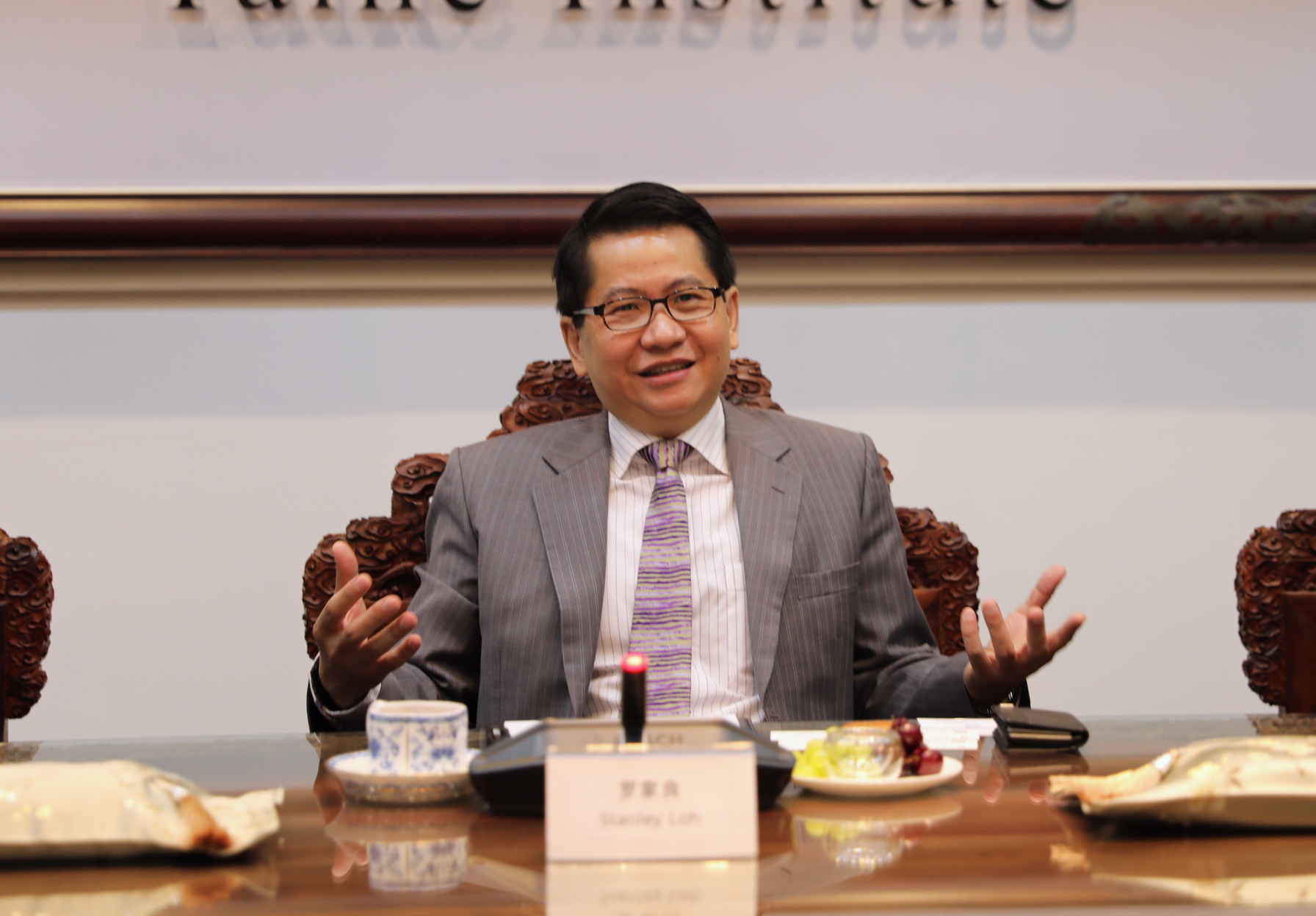
Mr. LUO Jialiang, Singaporean Ambassador to China
Ambassador LUO Jialiang believes that in the short term, disputes between China and the United States will be mainly reflected in economic and trade issues. China may initially be more heavily affected by this trade-war. However, China’s political system is very robust while historically the U.S. has had a tendency to perform rather poorly in this respect under domestic pressure. It will be more evident during the U.S. midterm elections. In the future, with its own strength and participation in international affairs, increased willingness to assume international responsibility, and changes in the world's environment, China's influence on the world economy will grow.
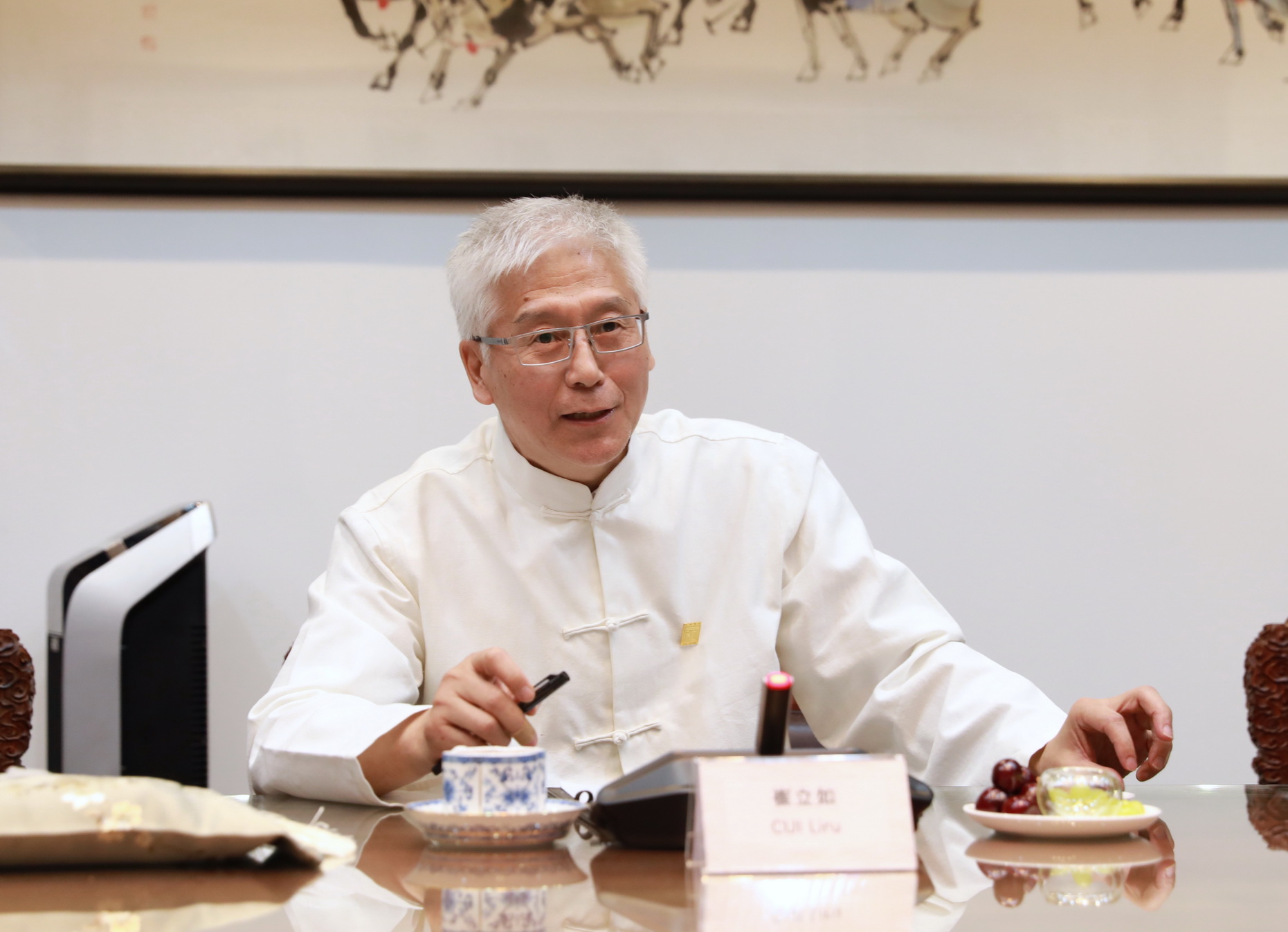
CUI Liru, Senior Researcher at Taihe Institute
CUI Liru, Senior Researcher at Taihe Institute, believes that the Trump administration attaches more significance to strength and outcome than ideology, resulting in his outcome-oriented leadership. However, the U.S. shouldn’t be reduced to the Trump administration. Currently, there are still many objections against the trade war in the US. The difference between the establishment and the anti-establishment is not difficult to detect in the process of Sino-U.S. negotiations. China is a country with strong “pain tolerance”. Thus, China’s attitude towards trade friction is quite clear. On one hand, China is ready to fight back despite the danger. On the other hand, China still hopes to figure out a solution through negotiation, no matter whether it is a package or a partial relief.
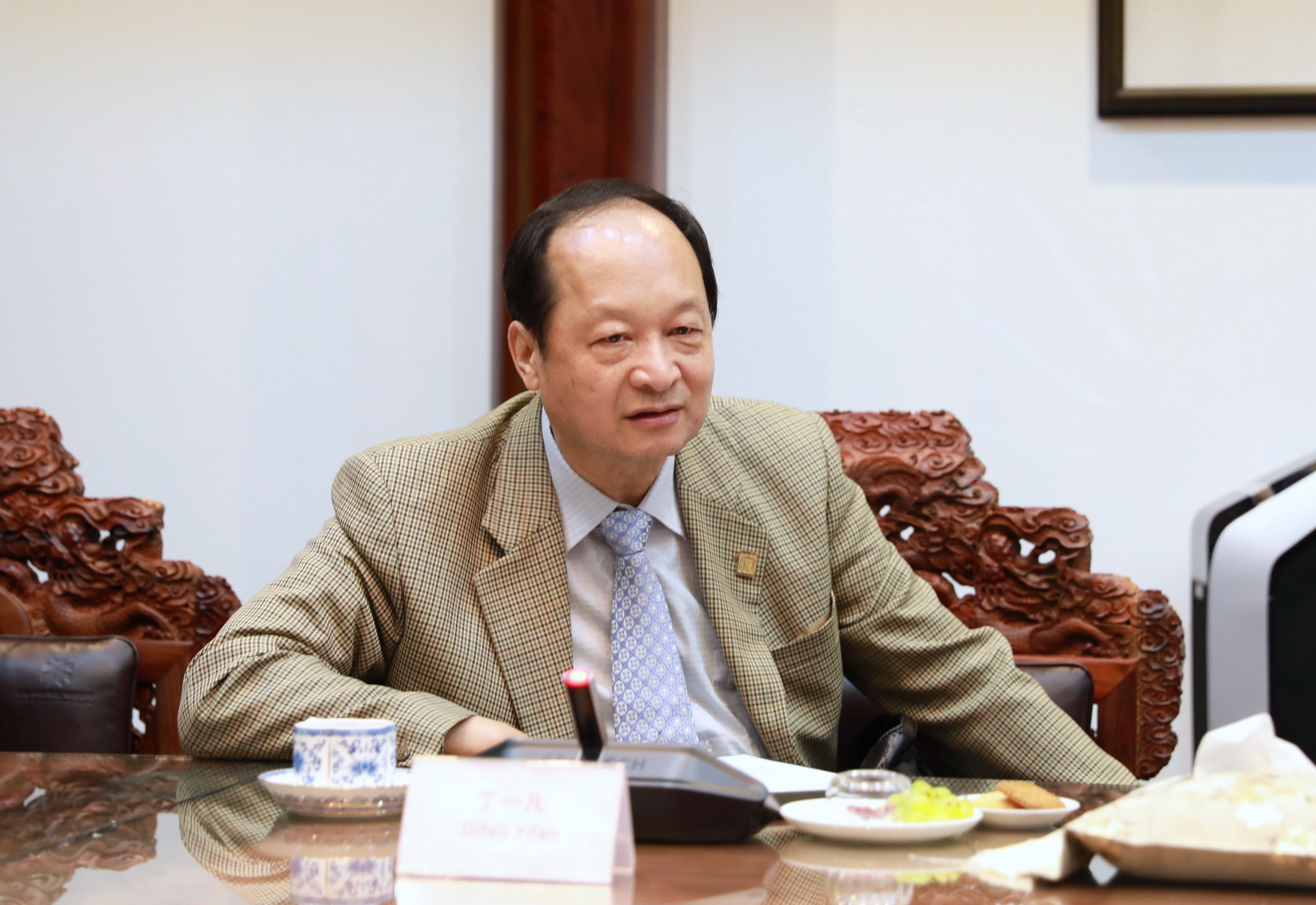
DING Yifan, Senior Researcher at Taihe Institute
DING Yifan, Senior Researcher at Taihe Institute, indicates that this round of the Sino-U.S. Trade Dispute has had an impact on the U.S. domestic economy. Because of the tariff increase, two small companies that produce parts and components have closed down in Arkansas, USA. This is just the beginning, as pointed out by American economists, and by the first and second quarter of next year, the influence of the Sino-U.S. Trade Dispute will be further fermented. The U.S. heavy fiscal deficit and debt burden will add to the latent disaster of the U.S. economy. At the same time, the Sino-U.S. Trade Dispute will also have spillover effect that affects other Asian countries. China possesses the world’s largest market, so during the trade friction, there are still high-profile announcements from Tesla, Ford and other companies to move to China. In fact, in terms of the interdependence between the two countries, the U.S. is more dependent on China.
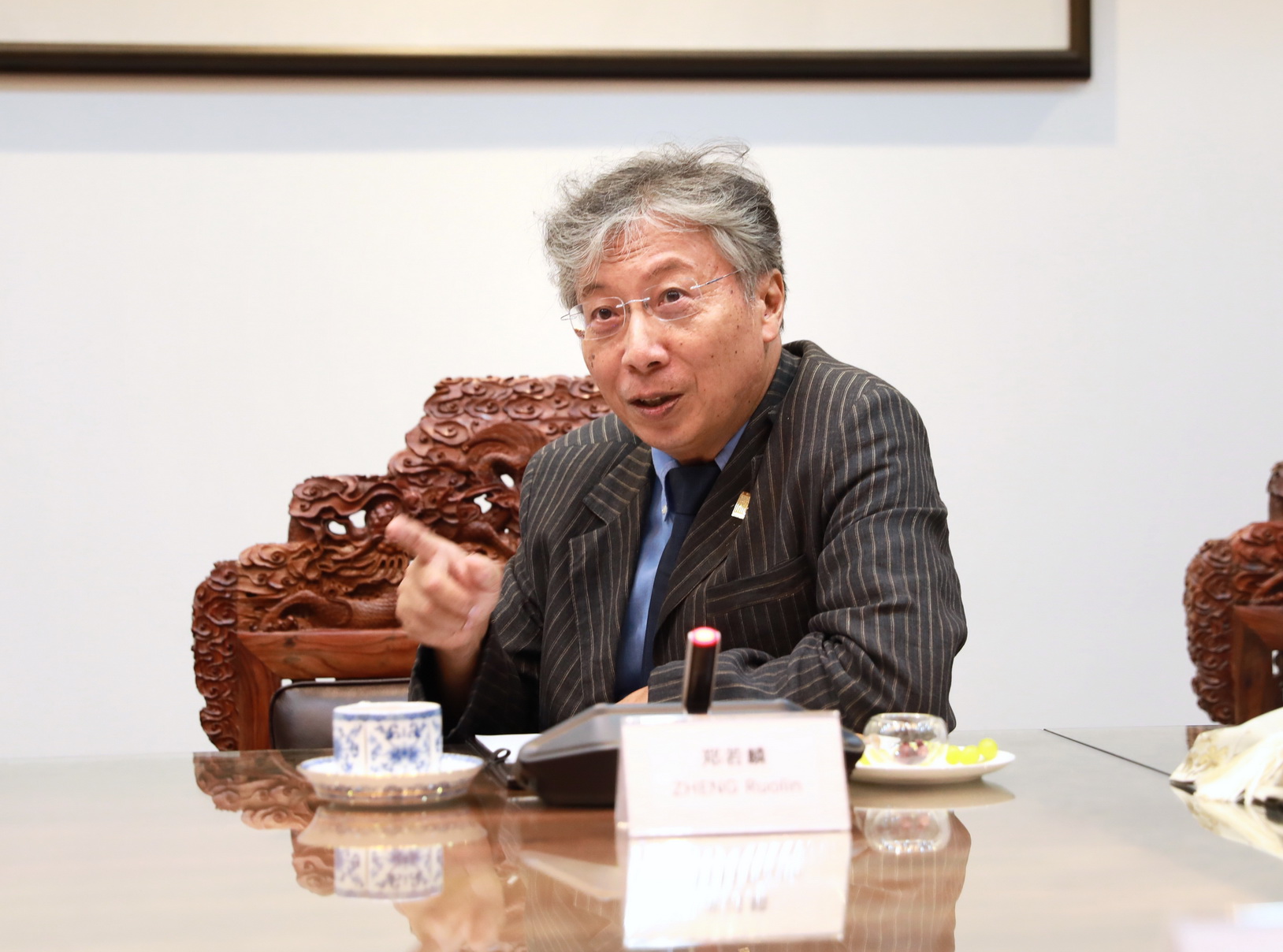
ZHENG Ruolin, Senior Researcher at Taihe Institute
ZHENG Ruolin, Senior Researcher at Taihe Institute, claims that the greatest mistake in the trade dispute launched by Trump administration is the involvement of the U.S. allies in Europe. In fact, the U.S. and Europe are in sharp conflict in automobiles, agriculture, and many other fields. In the long run, the attitude of the European Union and Russia is very important for the Sino-U.S. trade relations. European countries are already aware of the larger size of China’s market. Before long, the EU will have a clear change of attitude because of its interests. As the Sino-U.S. Trade Dispute develops to the later stage, there will be a possibility that the U.S. will have to fight against the world alone. If the two large trade bodies of the EU and China are united, it will be difficult for the U.S. to endure.
According to Ambassador LUO Jialiang, the U.S. clearly states that “China is the biggest competitor” in the latest National Security Strategy Report. This assessment will have a negative impact on the long-term development of Sino-U.S. relations. Since the U.S. political system is bottom-up, this statement is also a reflection of the U.S. public attitudes towards China, especially those on trade, economy and employment. As a matter of fact, at present, the opinion of American think tanks and the public on China are basically consistent: to identify China as a competitor is a consensus. Hence, China still has a lot of work to do in public diplomacy.
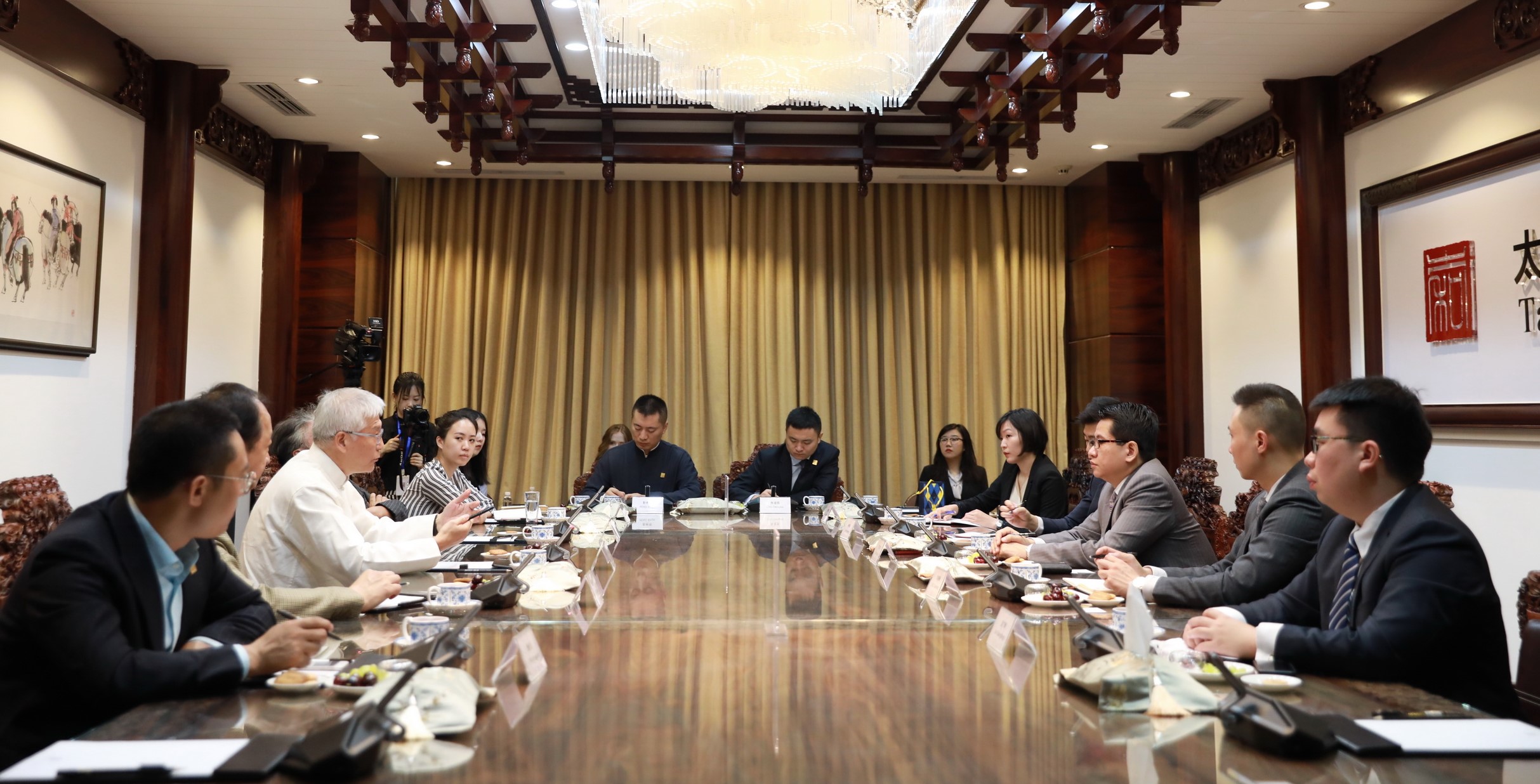
Seminar forum
CUI Liru, Senior Researcher at Taihe Institute, indicates that the U.S. strategic positioning of China has changed the dynamics of Sino-U.S. relations. In short, the interaction between the two sides has altered. The U.S. identifies China as the major rival, challenger and competitor, which results in the great adjustment in its China policy. At the same time, the current shifts in the Sino-U.S. relations are related with changes in the global environment. There are two major changes in the international environment. First, the capitalist Western-led global economic system has reached a crisis point to some extent. Second, the international power structure has changed. In the future, the competitive side of Sino-U.S. relations will be further highlighted, which can be reflected in two aspects. The first one is the strategic competition mainly manifested as the geopolitical competition, particularly in the Asia-Pacific region. Therefore, the U.S. proposed the “Indo-Pacific Strategy” to hedge China's “Belt and Road” Initiative. The second one is the mode competition. The U.S. is highly sensitive to the road of socialism with Chinese characteristics proposed by China. China is in a strong rise, and the U.S. wants to maintain its dominant position. Thus, in certain aspects, the collision between the two is inevitable. The Sino-U.S. relations are in a transitional period, and are about to enter a new stage. The core of future Sino-U.S. relations is to rebuild the balance and try to avoid the zero-sum game.
Ambassador LUO Jialiang holds that the rapid development of the DPRK’s nuclear capabilities has drawn the U.S.’ attention, and has results in its intended suppression. After the “Special Gold Summit” and the North-South Summit, the overall situation on the Korean Peninsula has been improving. However, judging from the current situation, there has been little actual progress in the process of denuclearization. North Korea has handed over the remains of U.S. soldiers that were killed during the Korean war, which has boosted both parties’ confidence in mending their relationship. Nevertheless, it has failed to directly propel the process of denuclearization.
CUI Liru, Senior Researcher at Taihe Institute stated that the Asia-Pacific security structure has long been established under the U.S.-led system. It maintains the region’s stability, to a certain degree. However, with changes that have been occurring on the international and regional stage, the regional security structure ought to be adjusted. The DPRK nuclear issue not only concerns the security in the peninsula, but also involves nuclear safety in North-East Asia, East Asia, and the rest of the world. The solutions to this problem are strongly correlated with the direction of regional security. Both the U.S. and the DPRK have their individual demands and national interests. Coupled with their lack of trust in each other’s political strategy, it is difficult to reach a substantive agreement. Thus, there is a need for a package of trading options. The ultimate goal of the DPRK is to achieve a degree of development while using nuclear weapons as a form of leverage, changing what was an armistice agreement into a peace agreement. China’s attitude towards denuclearization has always been firm, although Sino-DPRK relations are shifting with the development of the current situation. South Korea is also actively contributing to the resolution of the Korean Peninsula Issue, with expectations for the U.S. to make concessions in certain areas. Diplomatic relations with the U.S., more precisely, with the Trump administration will be greatly influenced by domestic politics. Trump’s political status in the U.S. and the development of the midterm election will directly influence the U.S.’ stance on the DPRK nuclear issue.
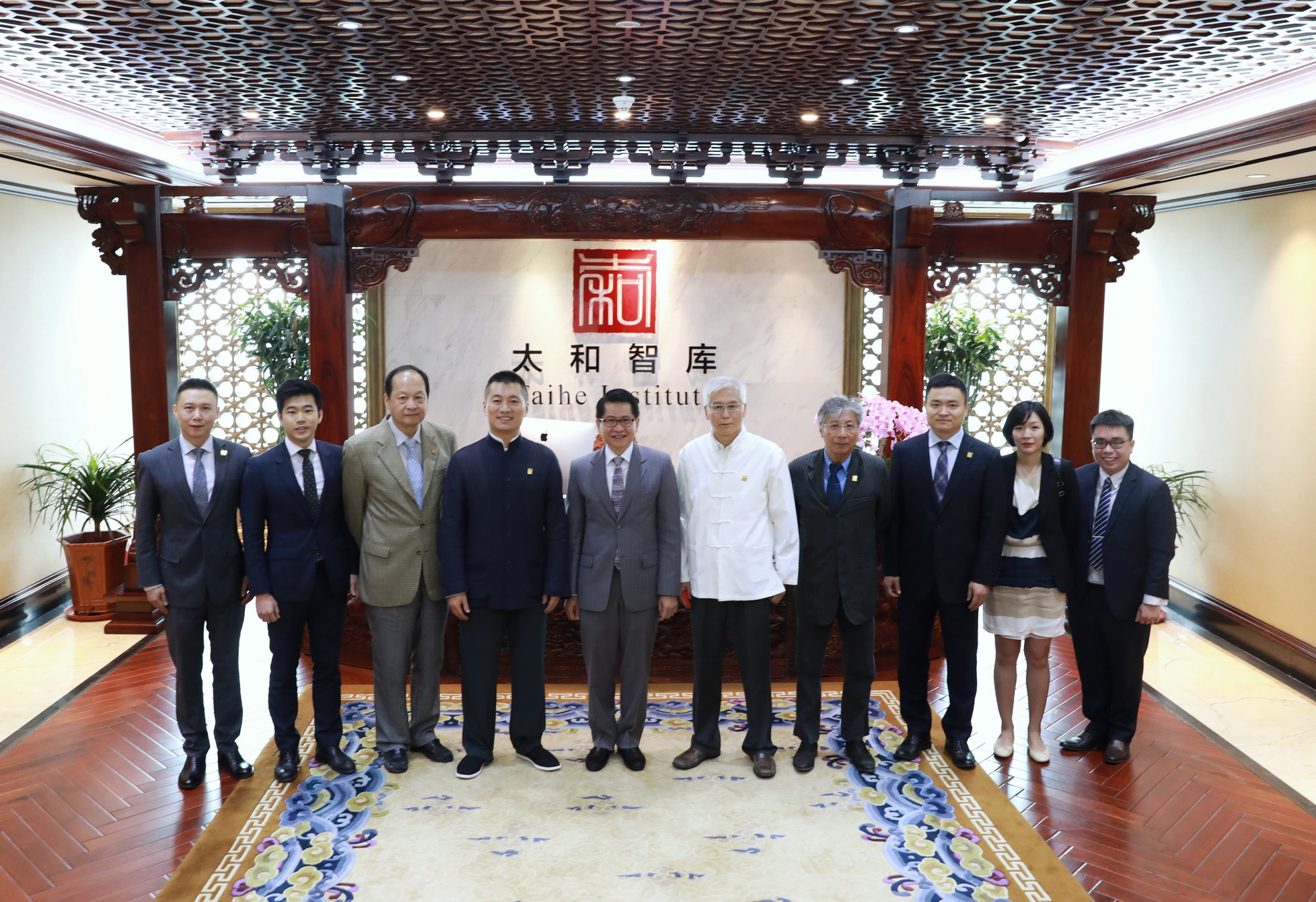
Attendance photo
Ambassador LUO Jialiang claims that Singapore has consistently supported China’s “Belt and Road” Initiative, and has played a special role within the Initiative. Singapore, as a platform for international financial investment, has been providing support for companies along Belt and Road. It also intends to carry out legal cooperation with China. Furthermore, Singapore strongly supports the construction of the “southbound passage” that connects the route of “Belt and Road” on land and through the sea.
CUI Liru, Senior Researcher at Taihe Institute stated that globalization leads to interdependence, and that this trend of interdependence will continue to be strengthened. Nowadays, in addition to “globalization” and “reverse globalization”, “re-globalization” is also frequently mentioned. The “Belt and Road” Initiative includes this implication of “re-globalization” to a certain extent. It is not unreasonable to oppose globalization, as it generates imbalances that may lead to many other problems. “Re-globalization” can be seen as an attempt to remedy this imbalance. The original intention of China’s “Belt and Road” Initiative is to highlight the positive aspect of globalization through interconnectedness, cooperation and mutual benefits, or in other words, to offset the imbalance caused by globalization.
—————————————————————
FOCUS ON CONTEMPORARY NEEDS.
Should you have any questions, please contact us at public@taiheglobal.org